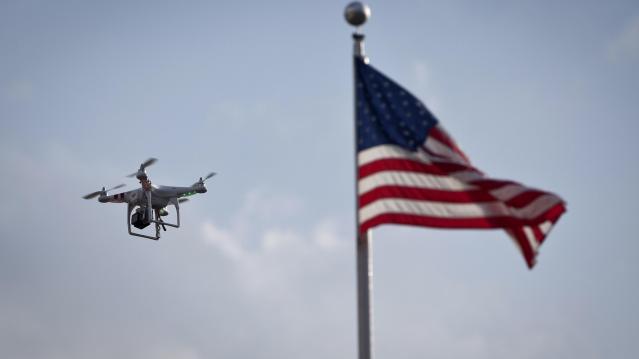The Class of 2015 Isn’t Ready to Join the Workforce

The improving economy means that more employers are offering decent jobs to the Class of 2015, but many of those new graduates don’t feel ready to join the working world.
Only 35 percent of students believe that college was effective in preparing them for a job, and even fewer — 20 percent — feel very prepared to enter the workforce, according to the 2015 Workforce Readiness Survey by McGraw Hill Education.
More than half of students surveyed said they never learned to write a resume in college or how to conduct themselves in a job interview. Nearly 60 percent said they didn’t know how to network or search for a job.
Related: Why the Class of 2015 May Actually Get Good Jobs
The job market has loosened up this year — employers expect to hire nearly 10 percent more new college graduates this year than last year, according ot a study released last month by the National Association of Colleges and Employers. Still, the best gigs remain very competitive, and students who don’t know how to navigate the job search process may find themselves at a disadvantage.
Two-thirds of those surveyed said that they wanted to get more internships or professional experience while in school, and about 60 percent wanted more time to focus on career prep.
Colleges regularly tout their career services departments, but the students surveyed for this report gave those offices poor marks. Only a third thought that their school’s career services department was effective, and a quarter had never used career services.
Denny Hastert: Uh, About That $500,000 Statue…

Illinois state lawmakers are hitting the breaks on a proposal to spend half a million dollars for a statue honoring former U.S. House Speaker Dennis Hastert after the Justice Department indicted the Illinois Republican on multiple charges Thursday.
About a month before the DOJ announced the indictment against Hastert,
Illinois House Speaker Michael Madigan introduced a bill to allocate $500,000 from the Illinois Development Fund for a statue of Hastert, who represented Illinois’ 14th Congressional for 20 years after serving as a state representative.
Related: Lying, Cheating, Stealing: How Corrupt is America?
However, Madigan’s spokesperson, Steve Brown, said Hastert contacted lawmakers asked that they defer the proposal because of the state’s financial condition. Illinois currently is running a $9 billion deficit. Still, the bill, which passed through a house committee, was placed on the calendar for a third reading on May 18.
In the indictment released Thursday evening, federal investigators allege that Hastert paid $3.5 million in hush money to “cover up misconduct.” The money allegedly went to someone in Yorkville, Ill., where he previously coached high school wrestling. The seven-page indictment also accused him of lying to the FBI.
Following the announcement, Hastert reportedly resigned from his current position at Washington, D.C., law firm Dickstein Shapiro, as well as a board member at CME Group, according to Reuters.
Undertrained Military Drone Pilots Have Senators Steaming

Lawmakers on Capitol Hill sent a scathing letter to Defense Secretary Ash Carter this week slamming the Pentagon for allowing Air Force and Army pilots to operate predator drones without completing their necessary training.
The revelation came in a report published last week by the Government Accountability Office that said most drone pilots never finished all of their training because of pilot shortages and a lack of planning and strategy within the Defense Department.
Related: Undertrained U.S. Drone Pilots Put War Effort at Risk
The report said that just about 35 percent of Air Force pilots had completed training for all their required missions. Separately, the Army had not been keeping sufficient pilot training records. “As a result, the Army does not know the full extent to which pilots have been trained and are therefore ready to be deployed,” the report said.
In the letter to Carter, Sen. John McCain (R-AZ), chairman of the Senate Committee on Armed Services, and Sen. Jack Reed (D-RI), the ranking member of the committee, said they were “disturbed that the Department of Defense has no standardized training program for [unmanned aerial system] pilots and personnel.”
"The continued lack of consistent and uniform training standards is simply unacceptable. In addition to collecting critical intelligence, the department's UAS programs carry out sensitive strike missions that should require high standards and specialized training,” the letter said.
Related: The Duck Drone That Could Change the Navy
The senators slammed the Air Force for its lax training efforts and demanded that the military improve its process and resolve the pilot shortages.
"These pilot shortages have constrained training and place extreme strain on the existing community of pilots and sensor operators,” the senators wrote.
The GAO first called attention to the drone pilot shortages and training concerns last year. The auditors said that the military attempted to resolve the shortages by hiring more instructors, but the new report shows that the instructors, too, lacked sufficient training.
Twinkies Get Back a Little Respect

You can’t keep a good junk food down.
The New York Post is reporting today that several bidders have made offers in the $2 billion range for Hostess Brands LLC, the maker of Twinkies, Ho Hos and Ding Dongs, among other gut-bloating goodies.
Hostess filed for bankruptcy in early 2012, and the snack cake part of the business was bought out of liquidation two years ago by Apollo Global Management and C. Dean Metropoulos.
Citing sources, the Post said bidders include Grupo Bimbo, Flowers Food and Aryzta AG, a Swiss company.
If Hostess does command anywhere near $2 billion, it will be a sweet day for Apollo and Metropoulos. According to the Post, they bought the Twinkies maker for $410 million.
The Easiest Way to Cut Your Home Insurance Bills

Here's a simple way to potentially cut $150 from your annual insurance expenses: Raising your homeowners’ insurance deductible from $500 to $2,000 could lower your premiums by an average of 16 percent, according to a new report by InsuranceQuotes.com. Based on the average insurance premium of $978, that works out to more than $150 a year in savings.
Of course, that lower bill comes with some caveats. First, the amount you save could vary widely depending on where you live and other factors. In the new study, the savings from a higher deductible ranged from 41 percent for North Carolina homeowners to just 4 percent in Hawaii.
Second, a higher deductible means that you would be on the hook to pay more out of pocket before your insurance coverage kicks in if something happened to your home. Before making the switch, be sure you have enough money in your emergency savings to cover the total cost of the deductible.
“Consumers need to consider the bottom line before increasing deductibles,” Laura Adams, a senior analyst with InsuranceQuotes.com said in a statement. “While switching from a $500 deductible to a $5,000 deductible sounds appealing because it lowers home insurance premiums by an average of 28 percent, it could be a risky move for consumers who don’t maintain that much in savings.”
Related: The Best Time to Buy Car Insurance
Increasing a deductible from $500 to $1,000 resulted in an average savings of 6 percent nationally, ranging from 25 percent in North Caorlina to a low of 1 percent in Kentucky.
As your deductible gets higher, it may become less likely that you file a claim at all, since doing so will push your premium up. A separate analysis last fall by insuranceQuotes.com found that a single claim—even if it’s denied—can hike your homeowners’ insurance by an average of 9 percent a year, which can amount to hundreds of dollars.
Looking to Buy a Home? Do This First

Buying a home is stressful enough without getting blindsided with a higher-than-expected rate on your mortgage — or outright rejection — due to a low credit score or errors on your credit report.
Even so, only half of recent home buyers said they checked their credit report early on in the homebuying process, according to a report released by Experian.
That can make for some nerve-wracked meetings with lenders. About a third of those surveyed said that their credit score surprised them, and a fifth of buyers said their score was lower than expected. Fourteen percent of homebuyers found something negative on their credit report that they didn’t know about.
Related: Why Your Credit Score Is the Most Important Number in Your Life
A low credit score can have costly consequences. A borrower with a FICO score of 760, for example, would pay $1,360 per month on a $300,000 loan, while a borrower with a score of 759 would pay $1,397 per month on the same loan. That difference will add up to more than $10,000 over the life of a 30-year mortgage.
Forty-five percent of future homebuyers surveyed by Experian said that they had delayed purchasing a home in order to work on their credit and qualify for better rates.
If your score is lower than expected, first check the report for errors and contact the credit bureaus about correcting them. If you’ve been dinged for a single missed payment, call your credit card company to see if it will remove the incident from your reports. Then focus on making on-time payments and paying down any high balances to get your debt-to-income ratio below 25 percent.
